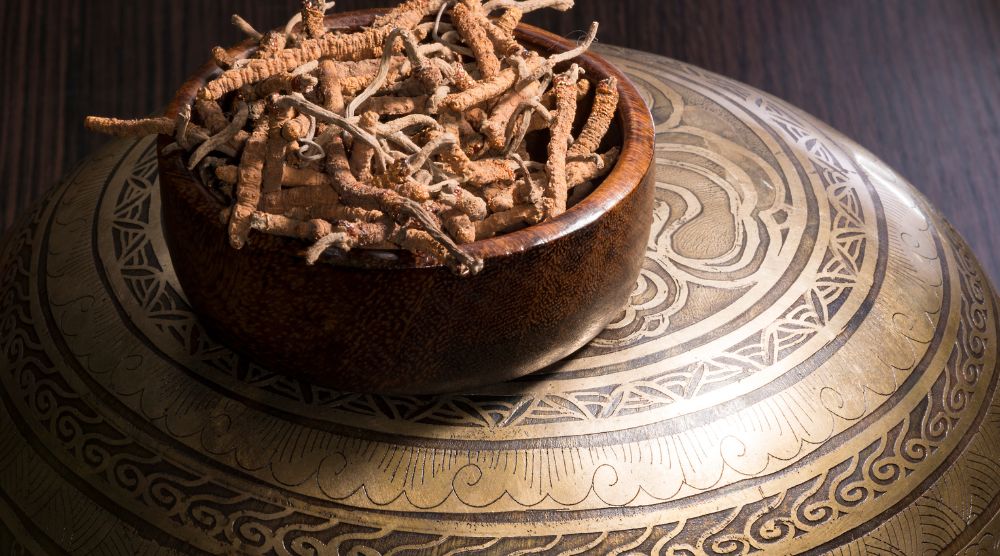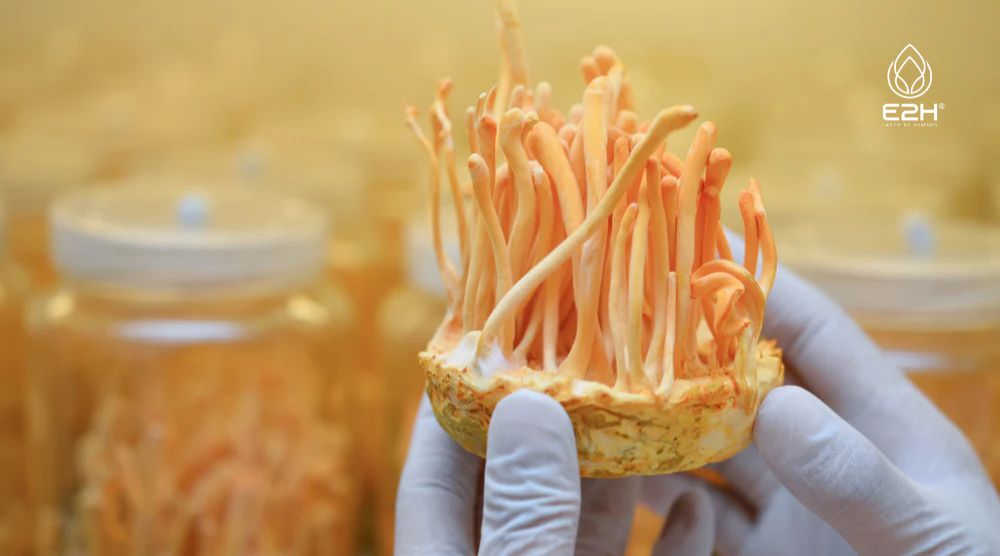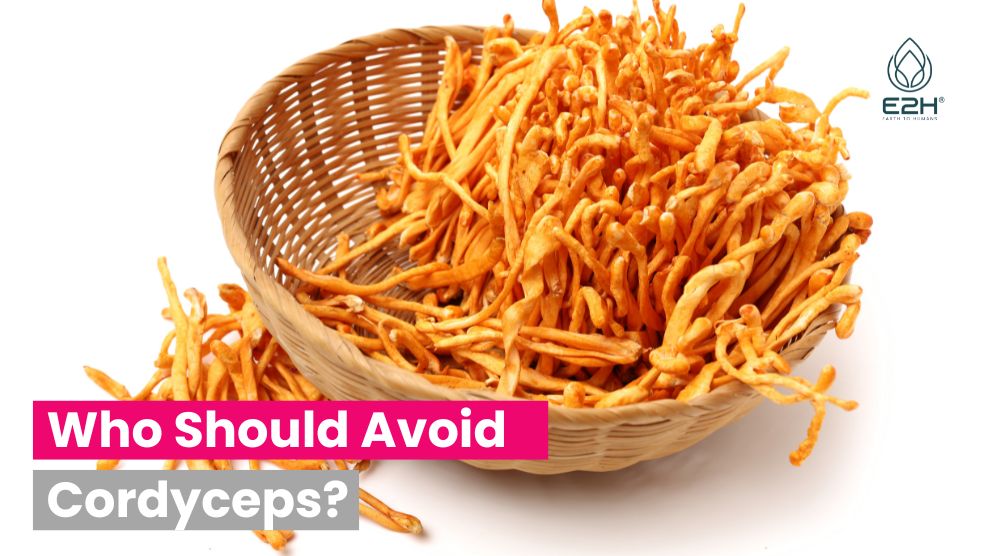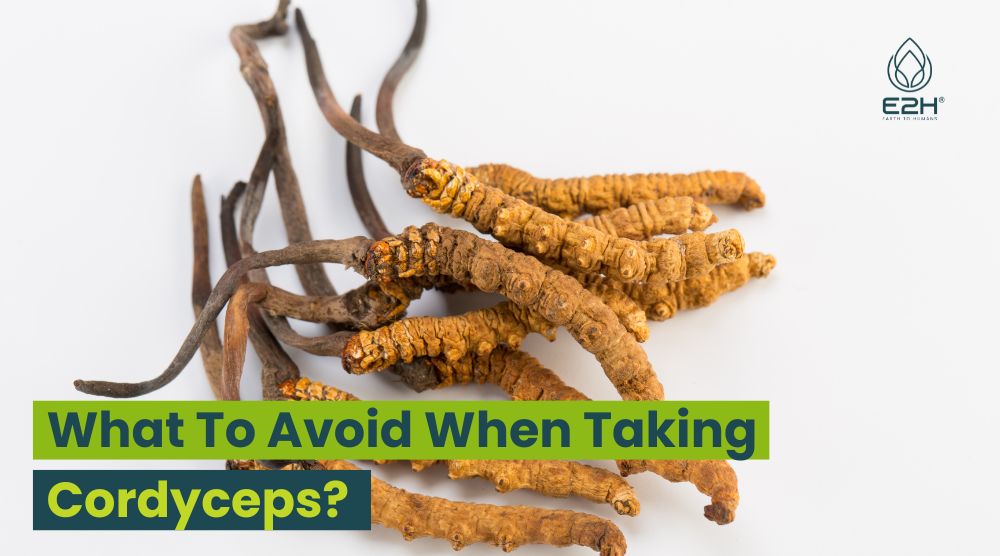Who Should Avoid Cordyceps: Individuals with allergies to cordyceps or related fungi should avoid cordyceps supplements. Pregnant, breastfeeding women, and children should also consult healthcare providers before use.
Understanding Cordyceps
Before we dive into who should steer clear of cordyceps, let’s grasp what this natural wonder is. Cordyceps is a genus of parasitic fungi, known for its unique way of thriving on the bodies of insects, particularly caterpillars. It has various species, but Cordyceps sinensis is one of the most widely studied and used in dietary supplements, such as cordyceps supplements.

The Appeal of Cordyceps
Cordyceps mushrooms have piqued the interest of health enthusiasts for several reasons.
- Firstly, they’re rich in bioactive compounds, including cordycepin, polysaccharides, and antioxidants, which are believed to contribute to their potential health benefits.
- Secondly, their historical use in traditional Chinese medicine as an energy booster and remedy for various ailments has lent them medicinal mushroom as an air of credibility. Cordyceps sinensis is highly regarded in Chinese herbal medicine.
Who Should Consider Cordyceps
Before we delve into who should avoid cordyceps, let’s acknowledge that this supplement can be beneficial for certain groups of people. Individuals looking to enhance their exercise and athletic performance further, boost their own immune system cellular immune response systems, or address specific health concerns may find cordyceps supplementation appealing. However, it’s crucial to use it mindfully and in consultation with a healthcare provider.
Who Should Avoid Cordyceps
Cordyceps might not be suitable for everyone, and some groups should exercise caution or avoid it altogether. Let’s explore who should approach cordyceps with care.
Pregnant and Breastfeeding Women
Pregnant and breastfeeding women should be cautious about cordyceps supplementation. While there’s limited research on cordyceps’ safety for this group, it’s advisable to err on the side of caution. The potential effects of cordyceps on pregnancy and infant development are not well understood, so consulting a healthcare provider is essential.
Children
Children should generally avoid cordyceps supplements. The lack of research on cordyceps’ effects on children’s developing bodies makes it a questionable choice. Parents and caregivers should prioritize a well-balanced diet and consult a pediatrician for guidance on cordyceps might and children’s supplementation needs.
People with Allergies
Cordyceps supplements, like any other natural product, can trigger allergic reactions in susceptible individuals. Allergies to a cordyceps extract can range from mild skin rashes to severe anaphylactic reactions. If you have a history of allergies, especially to fungi or mushrooms, it’s crucial to exercise caution and consult an allergist before using a cordyceps extract or supplement.
Underlying Health Conditions
If you have underlying health conditions or chronic illnesses, it’s essential to consult your healthcare provider before starting cordyceps supplementation. Cordyceps’ potential interactions with existing health issues or medications should be thoroughly evaluated.
Medication Interactions
Cordyceps may interact with specific medications, such as blood thinners and antidiabetic drugs. If you’re taking medications for any health condition, consult your healthcare provider before adding cordyceps to your regimen. They can assess potential interactions and adjust your treatment plan accordingly.
Potential Benefits of Cordyceps
Before we discuss who should avoid cordyceps, let’s touch on why so many individuals consider incorporating it into their daily routines.

Enhanced Exercise Performance
One of the most prominent claims about cordyceps is its ability to boost exercise and athletic performance. Athletes and fitness enthusiasts have been drawn to this fungus because it might improve oxygen utilization and tolerance to high-intensity workouts, potentially improving athletic performance.
Immune Support
Cordyceps is also hailed for its potential in strengthening the immune system. Research suggests that it can stimulate the production of certain immune system cells and chemicals, making it a possible ally in fighting infections lung cancer.
Respiratory Health
In traditional medicine, cordyceps has been used to support respiratory health. Some studies contaminated cordyceps indicate that it may help manage respiratory conditions and promote lung health, particularly in conditions like lung cancer.
Consulting a Healthcare Provider
Whether you’re considering taking cordyceps or any other dietary supplement, consulting a healthcare provider is a prudent step. They can provide personalized guidance based on your medical history, current health status, and wellness goals. Your healthcare provider can also help you determine whether taking cordyceps is a suitable addition to your routine and advise on safe usage guidelines.
Are there any known allergies associated with cordyceps?
Cordyceps, like many natural substances, can trigger allergies in some individuals. Allergic reactions to cordyceps are generally rare but can vary in severity. Symptoms may include skin rashes, itching, nasal congestion, or gastrointestinal discomfort. In rare cases, severe allergies may lead to anaphylactic shock, which is a life-threatening emergency.
If you suspect you might be allergic to cordyceps mushrooms or have a history of fungal or mushroom allergies, it is crucial to exercise caution with cordyceps dangers. Consult with an allergist or healthcare provider before using cordyceps fungi, mushrooms or supplements. They can conduct allergy tests to determine your sensitivity to cordyceps mushrooms or fungi and provide guidance on safe consumption.
Can children take cordyceps supplements?
Cordyceps supplements are generally intended for adults and not recommended for children. Limited research exists on the effects of cordyceps on a child’s developing body and immune system. Children should primarily obtain essential nutrients from a balanced diet.
Parents or caregivers should consult a pediatrician before considering any dietary supplements for children. Pediatricians can offer guidance on appropriate nutrition and supplementation based on a child’s specific needs. Safety and proper growth and development should always be the top priorities for children.
What role does Cordyceps sinensis play in traditional Chinese medicine?
Cordyceps sinensis holds significant importance in traditional Chinese medicine (TCM). It has been utilized for centuries as a natural remedy to address various health concerns. In TCM, Cordyceps sinensis is primarily known for its potential to enhance vitality and boost overall well-being. It is often employed as an adaptogen, helping the body adapt to stress and maintain balance.
Traditional Chinese medicine incorporates Cordyceps sinensis into formulations aimed at improving lung health, increasing stamina, and promoting kidney function. Its historical role in TCM underscores its value as a natural medicinal resource with potential health benefits.
Chemical constituents of Cordyceps militaris in the Foods article contribute to its biological activity?
Chemical constituents of Cordyceps militaris detailed in the Foods article indeed contribute to its biological activity. Cordyceps militaris contains various bioactive compounds such as cordycepin, polysaccharides, sterols, and phenolic compounds. These constituents are linked to its antioxidant, anti-inflammatory, and potential health-enhancing properties.
Cordycepin, in particular, has demonstrated effects on gene regulation related to diabetes. The combination of these chemical constituents makes Cordyceps militaris a subject of scientific interest for its potential contributions to health and wellness.
Is cordyceps safe for pregnant women?
The safety of cordyceps supplements for pregnant women is not well-established due to limited research. While cordyceps is generally considered safe for most adults, its potential effects on pregnancy and fetal development remain uncertain.
As a precaution, pregnant women are advised to avoid cordyceps supplements. The lack of comprehensive data on its safety during pregnancy warrants this conservative approach. Instead, pregnant women should focus on maintaining a balanced diet and obtaining necessary nutrients through food sources.

Before making any dietary or supplement choices during pregnancy, it is essential for expectant mothers to consult their healthcare providers. Healthcare professionals can provide personalized clinical nutrition recommendations that prioritize the health and well-being of both the mother and the developing fetus.
What to avoid when taking Cordyceps?
When taking Cordyceps supplements, there are a few precautions to keep in mind. It’s advisable to avoid consuming too much of Cordyceps supplement even if you are pregnant, breastfeeding, or giving it to children, as there is limited research on its effects in these populations.
Additionally, individuals with known allergies to fungi should exercise caution or consider avoiding a Cordyceps supplement due to the risk of allergic reactions, although such reactions are rare. Lastly, if you are on medications for conditions like diabetes or blood thinners, consult your healthcare provider before using a Cordyceps supplement, as it may interact with these drugs and require dosage adjustments. Always seek professional advice for personalized guidance.
My Unexpected Cordyceps Experience: 250 mg vs 500 mg vs 2000 mg
FAQs
Can cordyceps cure specific health conditions?
Cordyceps is not a cure for specific health conditions. While some studies suggest potential health benefits cultivated cordyceps, more research is needed to establish its efficacy as a treatment for chronic kidney disease. It is essential to consult a healthcare professional for appropriate medical advice.
Are there any side effects associated with taking cordyceps supplements?
Cordyceps supplements may cause mild side effects such as upset stomach, nausea, diarrhea, or dry mouth in some individuals. Severe side effects are rare but possible. It is advisable to discontinue use of cordyceps and consult a healthcare provider if adverse reactions occur.
Where can I find high-quality cordyceps supplements?
High-quality cordyceps supplements can be found in reputable health food stores, online retailers, or through recommendations from healthcare providers. Look for products that have been third-party tested for purity and quality to ensure safety and effectiveness.
Conclusion
In conclusion, when it comes to cordyceps supplementation, it’s crucial to consider who should avoid it. While cordyceps offers potential health benefits, individuals with allergies to cordyceps or related fungi must exercise caution. Pregnant and breastfeeding women, as well as children, should consult their healthcare providers before incorporating cordyceps into their routines.
This proactive approach ensures the safety and well-being of individuals who may be at higher risk of adverse reactions. By making informed decisions and seeking professional guidance, you can navigate the world of supplements and prioritize your health effectively. Don’t let uncertainties hold you back; instead, take the necessary steps to make informed choices on your wellness journey.












